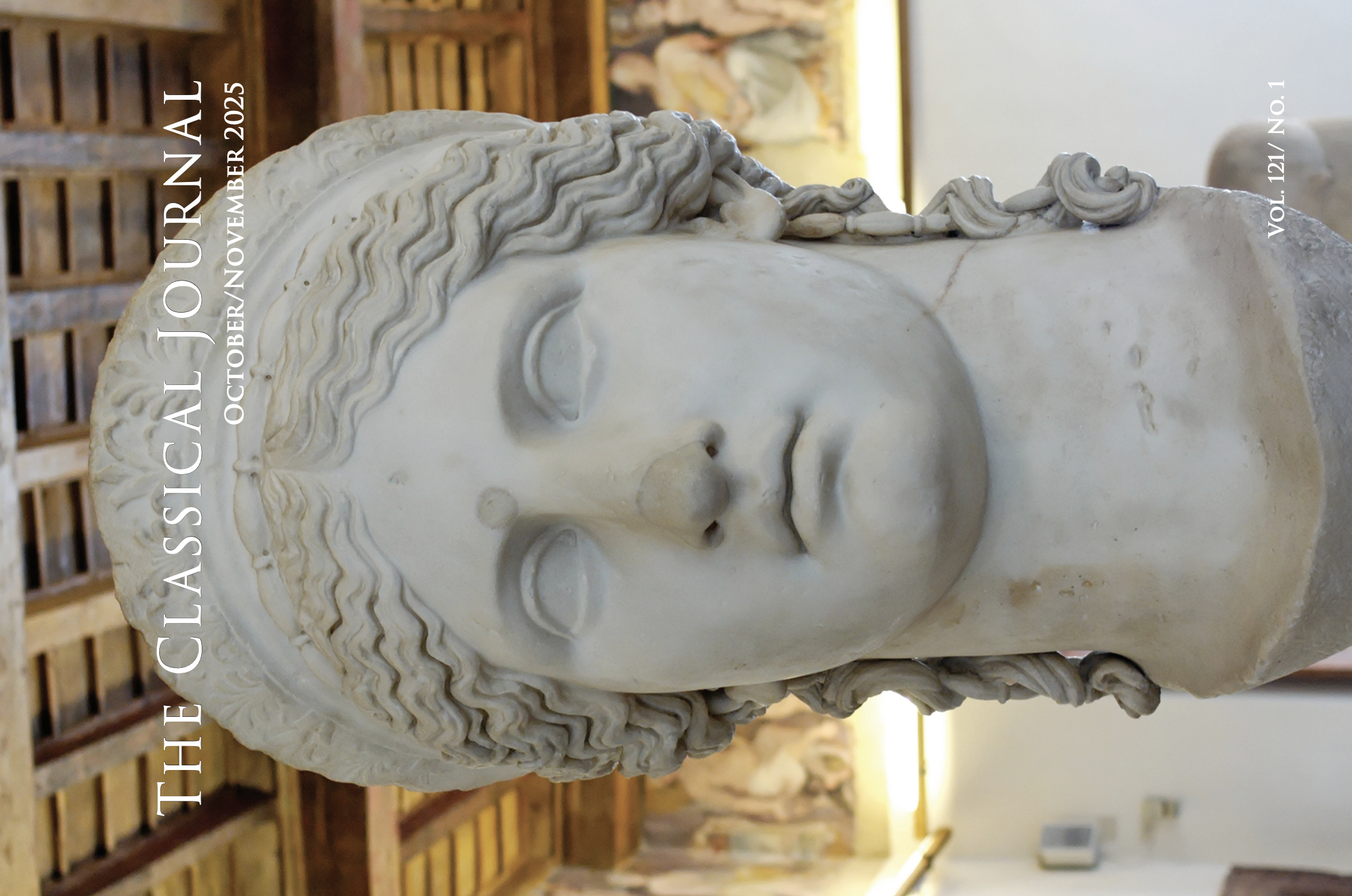The following articles are contained in CJ
103.4
Abstracts of Articles
GIFT, LIST & STORY IN ILIAD 9.115-61
I seek to complement existing studies that take the economic value of the individual items in Agamemnon's 'catalogue of gifts' in Iliad 9 as a starting point, by analyzing the catalogue as a verbal and rhetorical display. In listing his gifts, Agamemnon constructs a narrative and seeks to inscribe Achilles within it. His catalogue participates in a discourse on heroism no less than the reply it evokes from Achilles does, and between the two we can detect an underlying discourse on Homer's own poetics
LAST ACT IN CORINTH: THE BURIAL OF MEDEA'S CHILDREN (E. MED. 1378-83)
Religious and historical aspects of Euripides' innovative aetiology for the cult of Medea's children (Med. 1378'83) have been much discussed; less attention has been paid to Medea's fear that an enemy might abuse her children's corpses and tomb if she does not bury them in Hera Acraea's precinct. An analysis of Medea's enemies in the play, of the practice of tomb- and corpse-violation in Greek culture, and of how beliefs about the spirits of biaiothanatoi and aôroi play out in tragedy elucidates this fear and sets it in its cultural context.
PERICLES THE YOUNGER AND THE CITIZENSHIP LAW
Pericles' law of 451/0 would have denied citizenship to his son by Aspasia. Scholars have generally supposed that citizenship was granted by decree, as a privilege for Pericles alone. This paper argues instead that the citizenship law was amended in 430/29, allowing a father to adopt his nothos if he had no surviving gnēsioi. This adaptation was overshadowed by developments after 413, canceled in 403/2 and obscured by dubious testimony in late antiquity.
PITY IN SOPHOCLES' OEDIPUS COLONEUS, AJAX AND PHILOCTETES
Working from a critique of Aristotle's treatment of pity in the Ars Rhetorica, this article identifies a type of non-merit-based, non-familial, self-regarding pity in three plays of Sophocles that is both remarkably intense and uncommon in Greek literature and history. This pity implies that the protagonists (or 'heroes') in these plays are neither beasts nor greater than other, more civilized characters, but human.


